What happens when you drink red wine with high blood pressure?
Wine can promote blood circulation, prevent cardiovascular events, some people say that drinking alcohol can make blood pressure rise, and even cause sudden death, the said that white wine is not good for the body, wine can be casually drink good health? What are the facts?
Drinking more than 30ml of alcohol per day can increase systolic blood pressure by 4mmHg and diastolic blood pressure by 2mmHg. Regardless of age, gender, race, culture and social status, and regardless of the type of alcohol consumed, blood pressure increases with the amount of alcohol consumed, which may be related to the activation of sympathetic nerves and the inhibition of diastolic vascular substances. And heavy drinkers, hypertension complications increase, especially stroke and myocardial infarction is the most common, and the mortality rate for infrequent drinkers three times. In developed countries, the number of hypertensive patients has risen from 10% to 30% in recent years, possibly due to an increase in alcohol consumption. There is also another study: a small amount of alcohol can temporarily lower blood pressure, which may be related to the vasodilating effect of acetaldehyde, a metabolite of alcohol. And a small amount of alcohol can reduce the probability of sudden cardiac disease in hypertensive patients, if men do not exceed 50 ml of white wine per day (1 tael, alcohol content <25 g, women need to halve the amount of alcohol), may reduce the incidence of cardiovascular and cerebrovascular disease. So the relationship between alcohol consumption and blood pressure is based on the amount of alcohol consumed.
Red wine is actually grape-based wine, which contains a variety of amino acids, minerals and vitamins, all of which are nutrients that the human body must supplement and absorb. Secondly, wine has a softening effect on blood vessels, high blood pressure patients can be appropriate to drink, a small amount of red wine to expand blood vessels health effects, 1-2 cups a day is enough, each time no more than 30-50 ml. However, drinking too much will be unfavorable to the blood pressure, if it is already a moderate to severe hypertension, or can not be drinking wine, that is, wine wine is also not allowed. The
The 2016 Dietary Guidelines for Chinese Residents recommend that no one should be advised to start drinking alcohol or to drink frequently for the prevention of heart disease. It is recommended that adult males drink ≤25 g/d of alcohol (equivalent to 750 ml of beer, 250 ml of wine, and 50 g of high liquor). Adult women should drink half the amount of alcohol consumed by men. Alcohol is contraindicated for pregnant women, children and adolescents.
The authoritative interpretation of Pharmaceutical Affairs, unauthorized reproduction, plagiarism will be punished.
Hypertension is a chronic disease that, once uncontrolled, is likely to induce cardiovascular and cerebrovascular diseases. There are many reasons for high blood pressure, and diet also needs attention. Although red wine is good for most people, but for hypertensive patients should be careful, so what will be the consequences of drinking red wine for hypertensive patients? The following is an introduction for you.
Why should I not drink alcohol if I have high blood pressure? Alcohol has an effect on the elevation of blood pressure. Some data show that if you drink 20-40 grams of alcohol per day, the systolic blood pressure rises by 0.40-0.53 kPa (3-4 mmHg), the diastolic blood pressure rises by 0.13-0.27 kPa (1-2 mmHg), and the incidence of high blood pressure increases by 50 percent; if you drink 40-70 grams of alcohol per day, the systolic blood pressure rises by 0.67-0.80 kPa (5-6 mmHg), and diastolic blood pressure increased by 0.27-0.53 kPa (2-4 mmHg), and the effect of alcohol on systolic blood pressure was more pronounced than diastolic blood pressure.
Can I drink red wine if I have high blood pressure? Different types of alcohol have different effects on elevated blood pressure. Red wine has a lesser effect on blood pressure and contains more polyphenols (polyphenols) than other alcoholic beverages. Many studies have found that polyphenols are thought to reduce the incidence of cardiovascular disease. Red wine (red wine) does have a vascular protective effect, as well as activating blood circulation, nourishing and nourishing the skin, strengthening the body and prolonging life, and its pharmacological effects were recognized by ancient Chinese medical practitioners at a very early stage.
Modern medicine believes that red wine has the effect of calming, promoting blood circulation, diuretic sterilization, improving appetite, and preventing cardiovascular diseases. Some scholars report that the probability of elderly people who drink 3-4 cups of red wine every day to suffer from dementia and premature dementia is 25% of those who do not drink alcohol.
In general, hypertensive patients drink some red wine every day in moderation is beneficial, but it is still recommended to drink on the basis of blood pressure control, and in moderation, too much is to increase the burden on the blood vessels of the heart.
Instructor: Wu Hui, Professor, Chief Physician, Department of Cardiovascular Medicine, The First Affiliated Hospital of Guangzhou University of Traditional Chinese Medicine.
Specialties: Combination of Chinese and Western medicine in the prevention and treatment of coronary heart disease, hypertension, arrhythmia and heart failure; specializing in the treatment of coronary heart disease, hypertension, arrhythmia, cardiovascular intervention and pacemaker implantation.
Learn more about health science, stay tuned:Medlink Media
Our attitudes towards alcohol have always fluctuated greatly when faced with the fact that it is both harmful and addictive. For those who love to drink alcohol, they are convinced that it will have a positive effect on the body's well-being; for those who never drink alcohol, it is only likely to have a negative effect on the body. However, the question of whether drinking alcohol is beneficial or detrimental is inherently ambiguous and a topic of wide debate.
However, excessive alcohol consumption, whether acute or chronic, can have devastating effects on physical and mental health. Chronic heavy drinking can lead to cirrhosis of the liver and increase the likelihood of high blood pressure and stroke. On the other hand, there have been several studies that have shown that moderate daily consumption of alcohol, especially red wine, can lower blood pressure and reduce the incidence of cardiovascular disease. So for hypertensive patients, will drinking red wine have an effect on lowering blood pressure? Let's take a look.

What are the health effects of drinking red wine?
Alcohol, regardless of the type, is a major byproduct of fermentation in many organisms. When we ingest alcohol, most of it is metabolized in the liver before it enters the systemic blood supply. The liver is known for its ability to metabolize alcohol at a rate of about15 mL/hMetabolizes about 95% of the blood alcohol content. The rest tends to be lost through breathing or secreted into urine and other body fluids. Over time, the amount of alcohol in the bloodstream remains relatively constant.
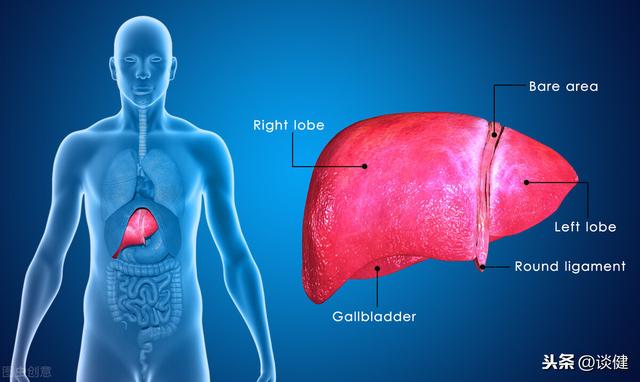
However, when we ingest red wine, the first organ it enters is the mouth, followed by the esophagus. Phytochemicals contained in red wine, such as lignans, quercetin and resveratrol have estrogenic properties. Several studies on lignans have confirmed their positive effects on cardiovascular disease. And animal studies have shown that they can synergistically reduce the incidence of cancer. Of course, excessive consumption of red wine can lead to the development of cancers, such as liver cancer, esophageal cancer, and so on.

According to in vitro and in vivo studies, consuming a certain amount of red wine daily can prevent various chronic diseases. This is mainly attributed to the presence and content of important antioxidants in red wine, especially resveratrol, anthocyanins and catechins, the most potent red wine antioxidants. Resveratrol prevents cardiovascular disease by neutralizing free oxygen radicals and reactive nitrogenous radicals. Moreover, it can penetrate the blood-brain barrier, thus protecting the brain and nerve cells. In addition, it also reduces platelet aggregation, thus counteracting the formation of blood clots or thrombi.
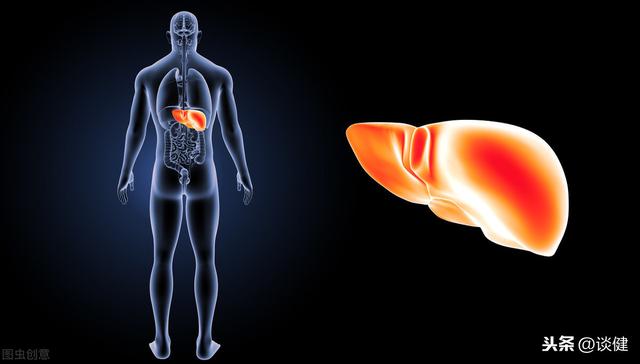
That said, we don't recommend that people who never drink alcohol pick up a glass of wine for the supposed health benefits. After all, these health benefits are only idealized in terms of research, and we don't really know if they are real or not. In addition, red wine is an addictive drink, and if we are not careful, we may fall into its embrace and lose control. And when we do, it will be a heavy blow to our health.
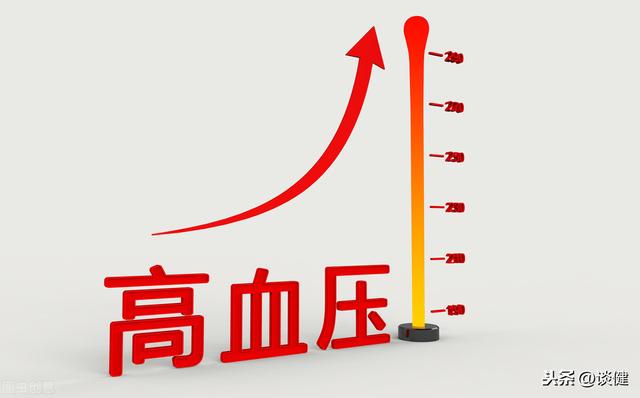
The link between high blood pressure and red wine
About whether people with high blood pressure can drink alcohol? This question has been the subject of much concern and controversy. Wine is mainly composed of water, carbohydrates, organic acids, minerals, alcohol, polyphenols and aromatic compounds. Many of these antioxidants are essential for maintaining good cardiovascular function. They are found in many plants, such as fruits and their derivatives and vegetables.
Based on this, epidemiologic data studies have shown that red wine consumption reduces the risk of cardiovascular disease. Polyphenols, which are present in large quantities in red wine, enhance the production ofnitric oxide和Endothelium-derived hyperpolarizing factorof improving endothelial function. From this perspective, drinking red wine improves vascular function in the body, thereby lowering blood pressure. In human studies, however, inconsistent results have been seen. In a double-blind, placebo-controlled, phase III crossover trial it was shown:
Polyphenols in red wine did not significantly affect 24-hour blood pressure, especially in normotensive and grade 1 hypertensive subjects, and ingestion of red wine at different doses for 4 weeks did not lower blood pressure.
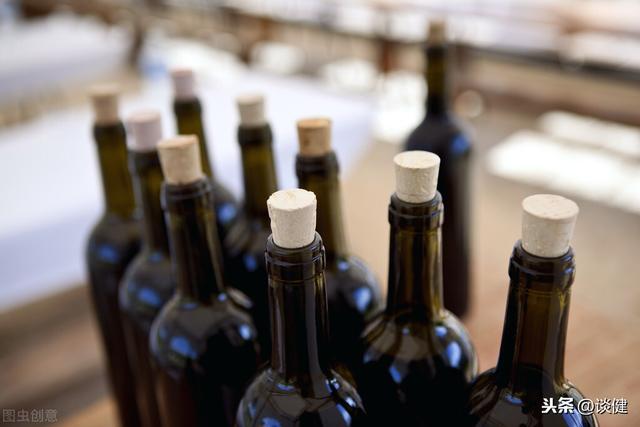
However, this does not negate the cardiovascular benefits of red wine consumption, only that such benefits are not associated with a reduction in blood pressure. Therefore, there is no medical support for increasing the intake of red wine with the goal of lowering blood pressure. In addition, intake of red wine may provide some cardiovascular benefits, but we should still seriously consider the fact that alcohol also contributes to elevated blood pressure, as well as the fact that long-term alcohol consumption increases the risk of other diseases. Therefore, it is clearly impractical to try to reduce blood pressure by drinking red wine.
In essence, there is no alcoholic beverage that is ideal for lowering and controlling blood pressure. In fact, an important role that is more suitable for those with high blood pressure should also belong to antihypertensive medications and lifestyle changes. In fact, this is one of the reasons why doctors do not recommend red wine intake as a blood pressure lowering treatment or disease prevention.
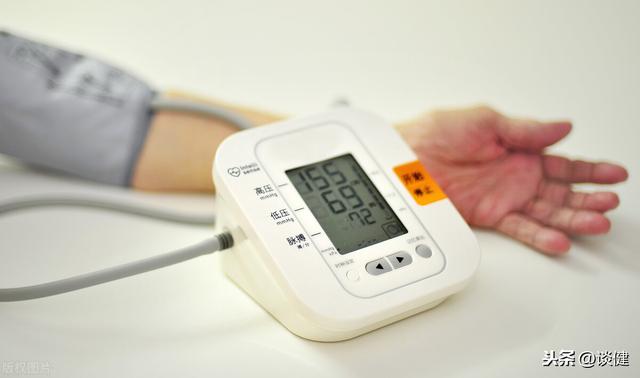
Should people with high blood pressure be drinking red wine or not? And what should pay attention to?
In clinical settings, medical guidelines do not advocate the consumption of any type of alcohol by hypertensive patients. Instead, if alcohol must be consumed, it is recommended that it be consumed in moderation, with a daily allowance for red wine ofLess than 100 ml.. When drinking alcohol, we are more inclined to consume foods that are high in energy, fat, or salt, so for our hypertensive friends who drink moderately, other risk factors such as high blood lipids, smoking, and a high-salt diet should also be strictly controlled.
Alcohol may interfere with many different medications, such as acetaminophen, antidepressants, painkillers, and more. Always make sure to check your medication labels and consult with your doctor at length before consuming alcohol while on medication. Additionally, alcohol can exacerbate certain respiratory conditions, and certain people may experience allergy symptoms such as hives, swollen lips, and flushing caused by alcohol intolerance. If we experience symptoms, it is also necessary to go to the hospital immediately to get personalized care.
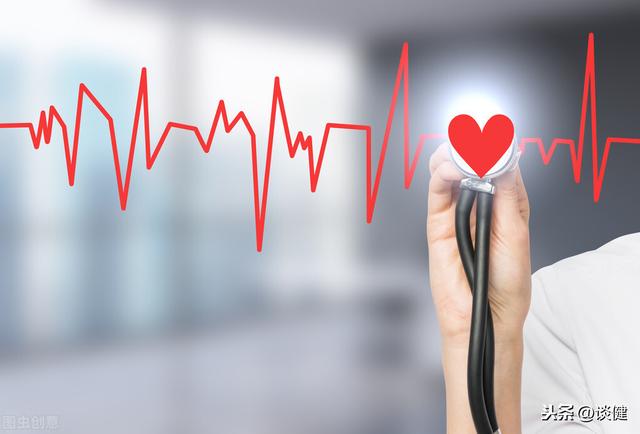
On the other hand, there are those with high blood pressure who not only have high blood pressure but also fast heart rates. Even regular moderate consumption of red wine can increase the risk of atrial fibrillation or tachycardia. Therefore, the best advice for those with elevated blood pressure and fast heart rates is not to drink alcohol. Even if you do drink alcohol, you need to pay strict attention to your heart rate.
Drinking alcohol has always been a part of our long-standing traditional culture. For a healthy population, it is impossible for us to achieve total elimination. In addition, alcohol is originally an addictive substance, and certain people have been drinking alcohol before they have hypertension, making it very difficult to quit. Although in my clinical work, I strictly require my patients to abstain from alcohol, but sometimes in the face of humanization, when the family has a happy event, when friends and relatives get together, occasionally drink a little bit is also irrelevant.

Conclusion:
In reality, red wine does get more attention than white wine or beer because it contains resveratrol - a polyphenol compound that may be good for the heart. In fact, with red wine, as with any type of alcohol, knowing moderation is key. In addition, we don't medically consider red wine consumption as part of our treatment recommendations, so we should always receive regular medication and life changes once we are diagnosed with high blood pressure that requires medication.
What happens when a hypertensive person drinks red wine? The one who can ask this question is presumably a hypertensive patient who loves to drink red wine. In fact, this kind of question seems to be simple, and Dr. Zhang has personally answered some of them, but because of its universality, it is said that it should be popularized again.
First of all, Dr. Zhang made it clear that Dr. Zhang's personal opinion is that people with high blood pressure should not drink alcohol. The main reason is that in recent years, some new studies continue to show that drinking alcohol is harmful to the body, even if it is less drink can not talk about any good place for the body. This is also in recent years a lot of medical research gradually recognized, so that Dr. Zhang to give you the advice is not to drink alcohol is the most healthy.

However, everyone is an ordinary person living in the real world, people in the world can't help it, you don't want to drink, people other people want to drink, it can't be helped. So, to the majority of hypertensive patients popularization also want to think of the reality, if you have no choice but to drink, Dr. Zhang recommended "2018 edition of China's hypertension prevention and treatment guidelines" recommendations pointed out that: adult men's daily alcohol intake is best not more than 25g, weekly alcohol intake control in the 140g or less; adult women's daily alcohol intake is not more than 15g, weekly alcohol intake control in the 80g or less. Adult women should consume no more than 15g of alcohol per day and less than 80g of alcohol per week. In terms of alcohol consumption, the American Dietetic Association (ADA) guidelines state that the average daily alcohol intake for men should be limited to 2 units of alcohol, and for women to 1 unit.

So that we may be difficult to understand, if the easy to understand is actually about 50 ° white wine do not exceed one or two, red wine do not exceed two, beer do not exceed one listen. Red wine is not as healthy as a lot of popularized information, drinking too much is not good for the body. Said red wine health, many because red wine contains some antioxidant substances, so that drinking red wine is relatively healthy, but as long as it is to drink more of this health effect is no longer obvious, and even because of excessive alcohol intake and lead to more health problems. Therefore, Dr. Zhang suggests that even red wine to drink less, if you especially want to drink red wine, we must pay attention to do not drink too much.
The above is Dr. Zhang's point of view on whether hypertensive patients can drink red wine, the Spring Festival is approaching, I hope to be able to help those who love to drink red wine friends.

Thank you for the invitation, welcome to follow today's headline author [relaxed happy]
According to a recent study in France, moderate consumption of wine can reduce mortality caused by elevated blood pressure.
Death rates from high blood pressure are much higher in countries such as Northern Europe and the United States than in countries around the Mediterranean, and it has been hypothesized in the past that this may be due to the dietary patterns of these countries. A look at the diets of Mediterranean countries reveals that red wine is a basic part of the table, and new research from France provides evidence to support this hypothesis.
The researchers analyzed 36,583 healthy middle-aged men who had normal electrocardiograms and were not attached to any medications for cardiovascular disease. They were followed for between 13 and 21 years. Mortality from hypertension was significantly lower in men who were moderate drinkers, consuming about 60 grams of alcohol per day, and not beer. Moderate drinkers with a systolic blood pressure of 158 mm-Hg had a mortality rate 23 percent lower than those who did not drink red wine and had the same blood pressure. Even for those in the highest blood pressure quartile, moderate red wine consumption was protective. There was no significant change in mortality if red wine was consumed in excess or if beer was consumed.
Red wine contains more polyphenols (polyphenols) than other alcoholic beverages. Many studies have found that polyphenols reduce inflammatory factors associated with cardiovascular disease. According to the World Health Organization, about 2/3 of all strokes and half of all heart attacks can be attributed to high blood pressure.
What happens when people with high blood pressure drink red wine? This has a lot to do with the amount of red wine you drink. For example, drinking 50ml of red wine per day is certainly not the same as drinking 1000ml of red wine per day. It is clear that excessive alcohol consumption is harmful to cardiovascular disease. But drinking small amounts of alcohol is not clear, with some studies supporting the benefits of drinking small amounts of alcohol and others suggesting that even small amounts of alcohol are not necessarily good.
Therefore, hypertensive patients drink red wine, less may not have any effect, drink more, for blood pressure control is certainly not favorable. In addition, it also increases the risk of stroke, coronary heart disease and these diseases.

The Dangers of Excessive Alcohol Consumption
1. What is excessive drinking
- excessive drinkingincluding throughHazardous Drinking和Harmful drinking, is differentiated by the amount of alcohol ingested.Hazardous DrinkingThis refers to 41-60 grams of alcohol per day for men and 21-40 grams of alcohol per day for women.
- 而Harmful drinkingThis refers to: men consuming more than 60 grams of alcohol per day and women consuming more than 40 grams of alcohol per day.
Our country has a long history of alcohol culture, and there are many people who drink, according to a survey: the rate of harmful drinking among adults over 18 years old is 9.3%.

2. The effect of excessive alcohol consumption on blood pressure
- Excessive alcohol consumption significantly increases the risk of developing hypertension, and the risk increases with the amount of alcohol consumed, while limiting alcohol consumption results in lower blood pressure.
- Studies have shown that a 67% reduction in alcohol intake can result in a decrease in systolic blood pressure of 3.31 mmHg and diastolic blood pressure of 2.04 mmHg.
- Hypertensive patients who consume large amounts of alcohol have difficulty controlling their blood pressure and are at increased risk for other cardiovascular diseases.
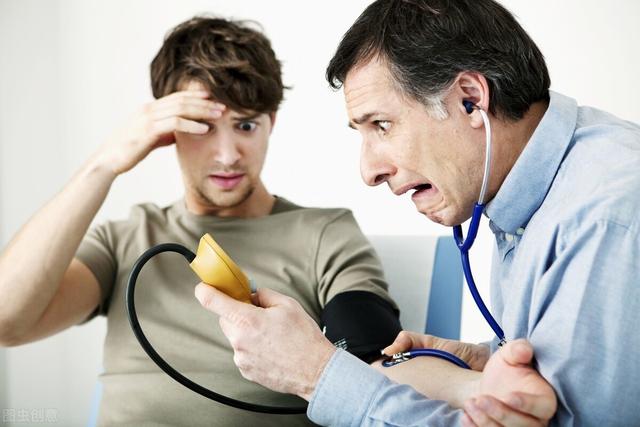
3. Effects of alcohol consumption on cerebral infarction and cerebral hemorrhage
Numerous studies have shown that the relationship between alcohol consumption and cerebral infarction and cerebral hemorrhage is a "J" shaped relationship, i.e., a small amount of alcohol consumption may be more beneficial than no alcohol consumption at all.
- Small amounts of alcohol can raise HDL cholesterol, which is good for the body. In addition, it can reduce platelet aggregation, lower fibrinogen concentrations, and increase insulin sensitivity.
- Heavy alcohol consumption leads to high blood pressure, hypercoagulability of the blood, reduced cerebral blood flow, and an increased risk of atrial fibrillation, therefore increasing the risk of cerebral infarction and cerebral hemorrhage.

The following is a list of relevant studies:
1. A meta-analysis including 35 studies
- Drinking is categorized into 5 levels: abstinence, <1 standard drinking unit per day, <1-2 standard drinking units per day, <3-5 standard drinking units per day, and >5 standard drinking units per day. (One standard drinking unit is equivalent to 11-14 grams of alcohol content.)
- The results showed that the risk of cerebral infarction was 1.69 times higher and the risk of cerebral hemorrhage was 2.18 times higher in people who drank >5 standard drinking units per day. In contrast, people who drank <1 standard drinking unit per day had a 17% and 20% lower risk of cerebral infarction and cerebral hemorrhage. People who drank 1-2 standard drinking units of alcohol per day had only a 20% reduction in cerebral infarction and no reduction in cerebral hemorrhage.
2. Two large studies involving Chinese men
- The first study showed that drinking more than 21 standard drinking units per week was associated with strokes (includingCerebral infarction and cerebral hemorrhage) had a 22% increased risk. In contrast, the risk of stroke onset was lowest for 1-6 standard drinking units of alcohol per week.
- Another study showed that moderate alcohol consumption reduces the risk of stroke, with a 6% lower risk of stroke compared to never drinking, with less than 15 grams of alcohol per day, a 10% lower risk with 15-29 grams of alcohol per day, and a 6% increased risk with more than 60 grams of alcohol per day.
3. Other relevant studies
- A prospective study that included 599,912 participants showed a linear relationship between alcohol consumption and the risk of stroke, with a 14% increase in the risk of stroke with intake of more than 100 grams of alcohol per week.
- The Cancer and Nutrition Cohort Study in eight European countries found that an increase of 12 grams of alcohol intake per day, on top of 24 grams of alcohol per day for men and 10 grams of alcohol per day for women, was associated with an increased risk of nonfatal and fatal strokes of 4 percent and 5 percent.
The dangers of drinking large amounts of alcohol are clear, and the results of various studies are consistent that heavy drinking is bad. But there is real controversy about drinking small amounts of alcohol.
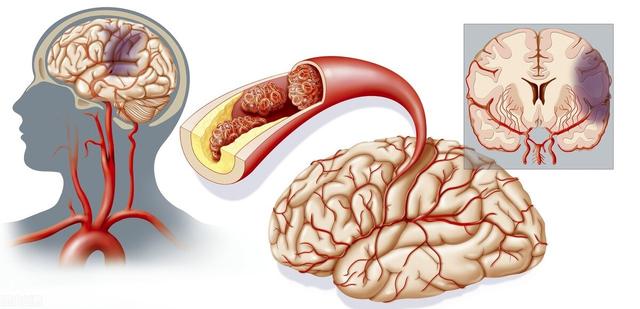
Some studies have concluded that small amounts of alcohol do not provide cardiovascular protection.
- A number of recent studies have shown thatCompared to people who never drink alcoholThe risk of stroke increased by 14%, cerebral infarction by 7%, and cerebral hemorrhage by 43% with less than 14 standard drinking units per week for women and less than 21 standard drinking units per week for men.
- And if women are greater than 14 standard drinking units per week, men are greater than 21 standard drinking units per week.Compared to people who never drink alcoholThe risk of having a stroke was 2.09 times higher, the risk of cerebral infarction was 2.14 times higher, and cerebral hemorrhage was 2.44 times higher.

Summary:
- What are the consequences of drinking red wine for people with high blood pressure? The main issue is the amount of red wine you drink per day. In the current view, a daily dose of more than100ml of red wine, 50ml of white wine, 300ml of beerIt's bad, it's bad for blood pressure, it's bad for cardiovascular.
- And whether less than that amount is good or bad is inconclusive. But after all, there are studies that have concluded that small amounts of alcohol are also bad. So, personally, I'm of the opinion that if you can quit, try to quit; if you can't, drink less and keep the amount under control.
I am adhere to the medical science and popularization of Chen Dafu, to my answer to the satisfaction, please give me praise and attention, your support, is my creation of the greatest power.
Thanks! Drinking red wine for high blood pressure won't have any great benefits, but of course if done in moderation it won't have any negative consequences.
1. Many people believe that drinking alcohol can lower blood pressure, however, this is not the case.Red wine polyphenols did not lower peripheral or central arterial blood pressure in normo-high blood pressure and in hypertensive patients, a 2012 study shows(Literature from: ILse PG.Botden,Richard Draijer,Berend E.Westerhof,Joost HW.Rutten,Janneke G.Langendonk,Eric JG.Sjbrands AH.Jan Danser,Peter L Zock. Anton H van den Meiracker. (Am J Hypertens,2012,25(6):718-723.). The aim of this study was to explore whether polyphenols extracted from red wine could reduce peripheral or central arterial blood pressure in patients with normohypertension or grade 1 hypertension.METHODS:In a double-blind, placebo-controlled, three-phase crossover trial, the investigators gave 61 subjects [age (61.4±8.4) years, systolic blood pressure (135±9) mm Hg (1 mm Hg=0.133 kPa), diastolic blood pressure (82.5±8.4), and diastolic blood pressure (82.5±8.4), and diastolic blood pressure (82.4±8.4), respectively, in a double-blind, placebo-controlled, three-phase crossover trial. Diastolic blood pressure (82±8) mm Hg], placebo, 280 or 560 mg of red wine polyphenols were consumed. office, 24-h ambulatory blood pressure, and central hemodynamic changes were assessed after 4 weeks of intervention each. results: polyphenol treatment did not significantly alter 24-h ambulatory blood pressure monitoring: placebo group (143±2)/(84±1) mm Hg, 280 mg/d Blood pressure was (143±2)/(84±1) mm Hg in the placebo group and (143±2)/(83±1) mm Hg in the red wine polyphenol group, and (143±2)/(83±1) mm Hg in the placebo group, and (143±2)/(83±1) mm Hg in the placebo group, and (143±2)/(84±1) mm Hg in the placebo group, and (143±2)/(83±1) mm Hg in the red wine polyphenol group, and (143±2)/(83±1) mm Hg in the placebo group, and (143±2)/(83±1) mm Hg in the placebo group, and 280mg/d in the red wine polyphenol group, respectively. The results of this study do not support the hypothesis that red wine reduces cardiovascular risk by lowering blood pressure through polyphenols.
2. 6 glasses of red wine a day tripled oral cancer
A British study found that drinking six glasses of red wine a day can double the risk of high blood pressure and triple the risk of oral cancer. More than 5,000 new cases of oral cancer are diagnosed in the UK each year, and more than 1,800 of them die as a result. According to the report, oral cancer is not a common disease, but the incidence has increased by 20% over the past 30 years, with the incidence in men twice as high as in women. As a result, health guidelines published by the UK Department of Health recommend that men and women should not drink more than four and three glasses of alcohol per day respectively (roughly 83ml per glass).
So, as always, quit smoking and limit your alcohol consumption, such as drinking in moderation.
What will happen if you have high blood pressure and drink some red wine? I don't know whether the friend who asked this question wants to know whether drinking red wine will be harmful to hypertensive patients, or hopes to be able to lower blood pressure and protect the health of blood vessels by drinking some red wine. If you don't drink alcohol and hope that drinking red wine will help regulate your blood pressure and protect your cardiovascular system, then I would advise you to stop.
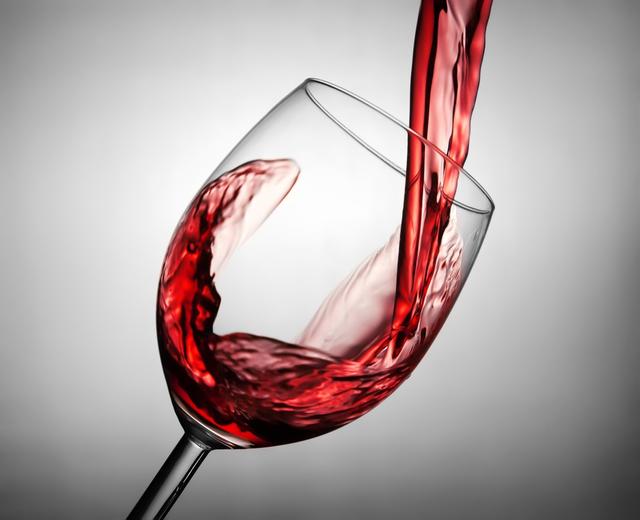
Red wine is no different than any other alcohol when it comes to health hazards
In the wine field, often people say, I have high blood pressure, can not drink, persuade people to say: all right drink some red. The implication of this, as if red wine is not wine, or red wine drink more will not affect the health of the same, in fact, although the alcohol content of red wine than white wine is lower, but if a large number of long-term drink, the same may also cause greater health hazards.
Take our common dry red wine, its alcohol content is generally around 11 ° to 13 °, compared to white wine, the alcohol content of this wine is relatively low, but if the per capita to drink one or two white, you drink half a catty of red, in fact, the amount of alcohol ingested, is definitely not less than the amount of people drinking white wine. Alcohol into the human body, through the digestive tract absorption into the blood circulation, will also be metabolized in the liver, there is a part of the alcohol will be through the blood-brain barrier into the brain, therefore, if it is a long time a lot of alcohol, regardless of whether it is red wine or white wine, for the digestive health, vascular health, liver health, cerebral vascular health, and so on a number of aspects, will have a certain impact.
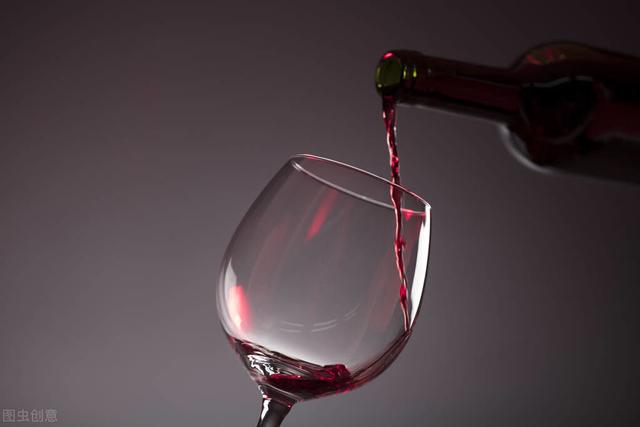
And if you are a hypertensive patient, drinking red wine in large quantities over a long period of time, both of them will be at the same time on the cardiovascular and cerebrovascular health to form a double risk, undoubtedly will increase the risk to the cardiovascular and cerebrovascular risk, certainly is not recommended to do so. Some friends may say, how about I drink less? However, it should be noted that alcohol is a harmful substance with certain addictive properties, and I am afraid that at the beginning, I just drink less, but with the development of habits, drinking less is uncomfortable, which leads to more and more drinking, and develop the habit of not drinking, and even drinking less is uncomfortable, which is even more harmful to the body.
With high blood pressure, it's important to limit alcohol consumption
Neither red wine nor any other alcohol is usually an absolute contraindication for people with high blood pressure. However, if you are in the habit of drinking alcohol, often in large quantities, it is recommended that you try to drink as little as possible by exercising strict self-discipline.
Alcohol for health hazards, for hypertensive patients, we have already talked about, in fact, for hypertensive patients, whether it is to control blood pressure, or control alcohol consumption, the ultimate goal is to protect the cardiovascular, cerebral vascular, renal and other target organs of the health, therefore, if from this point of view, to be able to abstain from drinking alcohol is the best, but if you really can not abstain from drinking alcohol, but also try to be controlled, whether from the frequency or the amount of red wine, it is recommended that men's daily intake should be more than 100g, while women should also be halved on this basis. Whether it is from the frequency of drinking, or the amount of alcohol, there should be some control, if you want to drink red wine, it is recommended that men's daily intake should be no more than 100g, and women should also be halved on this basis.
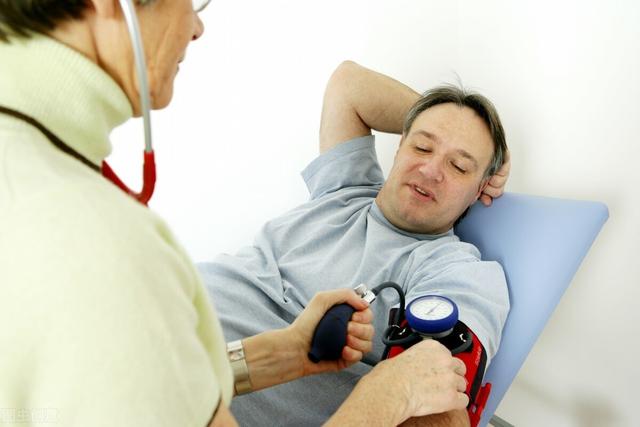
For people with high blood pressure, another danger of drinking alcohol lies in the effects of possible interactions with medications. Most of the hypertensive patients, need to take long-term antihypertensive drugs to control blood pressure, there is also a part of hypertensive friends, combined with other chronic disease problems, eat more drugs, if you need to take medication for a long time, it is recommended that you should still do medication do not drink alcohol, drink alcohol do not take medication, alcohol in the process of hepatic metabolism, there is a great possibility that it will affect the hepatic metabolism of the drug, regardless of whether this effect is positive or reverse, will affect the efficacy of the drug and the risk of adverse reactions, therefore, for friends who need to take medication regularly, or not drink subtle, if you must drink, but also try to stagger the time of taking medication, control as little as possible to drink.
Drinking red wine to control high blood pressure is not reliable
Some people find that when they measure their blood pressure after drinking some alcohol, the original high blood pressure will be lowered instead, and this is entirely possible. Alcohol can inhibit the cerebral cortex, so that the nervous spirit of relaxation, while wine also has a certain role in stimulating urination, if at the same time and not timely intake of water, may also cause a drop in blood volume, these aspects of the impact of all possible people in the consumption of alcohol, blood pressure decreased, but this is not as a drink can lower blood pressure, drink some red wine on the health of patients with high blood pressure, evidence of health benefits.
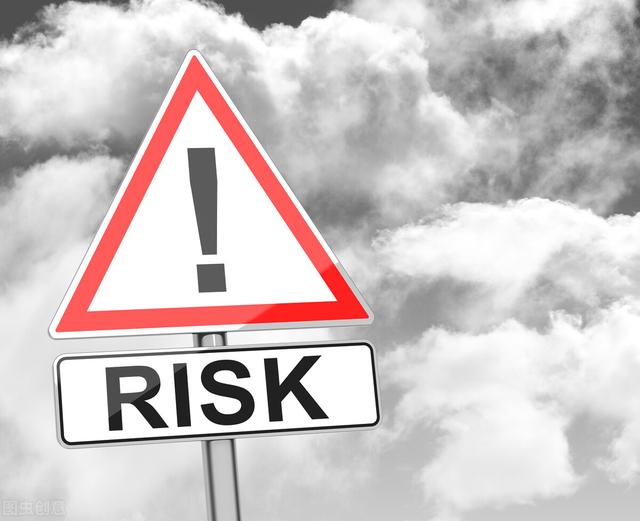
This blood pressure regulating effect of alcohol varies from person to person, and regular consumption of alcohol tends to make the body dependent on alcohol, which ultimately leads to more and more drinking and more and more harm to the body, so it is of course very unwise to take a way of regulating and controlling blood pressure that is harmful to the body and does not always have a clear effect.
But for the matter of drinking, drink or not drink, in the final analysis or a personal choice, for friends with high blood pressure problems, if you choose to be healthy, in terms of drinking, no matter red wine or white wine or beer, to have some restraint, as little as possible or do not drink, try to minimize the health hazards and risks that alcohol may bring to the body, if it turns out that friends do not drink alcohol, it is more unnecessary to drink red wine in order to regulate blood pressure! If you do not drink, there is no need to drink red wine in order to regulate blood pressure, such a practice will affect cardiovascular health in addition to no additional benefits; for those who choose to know that there is high blood pressure, cardiovascular risk, or to insist on a large number of friends who drink, a large number of long-term drinking brought about by the health risks and health hazards can only be borne by themselves, do not you think so?
I suffer from renal hypertension, high pressure 160, because of medication for fear of kidney damage, friends suggested to drink less wine. After drinking wine for a week, my blood pressure dropped. In addition, appropriate exercise, such as walking after the blood pressure also has a record of decline. Also, after taking medication and drinking water and other necessary preparations, you can also moderate sauna, the method is to first adaptive warm-up, and then, sauna bath a few minutes after sweating, with warm cool water rinse, so repeated 3-6 times, the time required 2-4 hours, each time between, appropriate rest and drink water, sauna bath sweating, the human body and the blood has a certain detoxification effect, promote blood circulation. In short, red wine, sports, sauna bath varies from person to person, appropriate.
Thanks for the invite!
People with high blood pressure are not at increased risk if they drink moderate amounts of red wine.
Hypertension is one of the most common cardiovascular diseases. Excessive alcohol consumption is associated with increased blood pressure and a higher prevalence of hypertension, and it is hypothesized that alcohol is a vasodilator at low doses and a vasoconstrictor at high doses. Excessive alcohol consumption increases the risk of hypertension and stroke, and since we know that drinking alcohol for hypertension can increase resistance to antihypertensive medications, it is advocated that people with hypertension should and abstain from alcohol.

Beneficial components contained in red wine:Red wine contains sugar, mineral elements and various vitamins, as well as a small amount of amino acids. It also contains some non-nutritive components, such as organic acids, phenolic compounds, red wine mainly has flavonoids and tannins in two parts, with strong antioxidant, such as flavonoids, with the function of preventing cardiovascular disease, polyphenol compounds in red wine can inhibit the activity of platelets, so as to inhibit thrombosis, and can make the platelets that have been formed thrombus depolymerization, but also promote the secretion of vascular endothelial cells to produce diastolic factor, thus reducing the occurrence of embolic cardiovascular disease. It can also promote the secretion of vascular endothelial cells to produce diastolic factors, thus reducing the occurrence of embolic cardiovascular disease. Therefore, the intake of these compounds contained in red wine is negatively correlated with the incidence of coronary heart disease and myocardial infarction.

Having said that, it is just to say that red wine contains certain ingredients that are good for the body. Similarly, red wine also contains a lot of suspected ingredients and toxic side effects. For example, methanol, ethanol, etc. These have significant anesthetic effects on the body. In severe cases the same can cause dilation and spasm of blood vessels in the brain and cause bleeding.

So, although red wine has a relatively low alcohol content and contains ingredients that have a preventive effect on cardiovascular and cerebrovascular diseases, red wine is also alcohol, and hypertensive patients must pay attention to the amount of intake. Normal male intake of red wine is recommended for 250 ml, women for 150 ml, for hypertensive patients should be even less can. To not be counterproductive.
This question and answer are from the site users, does not represent the position of the site, such as infringement, please contact the administrator to delete.